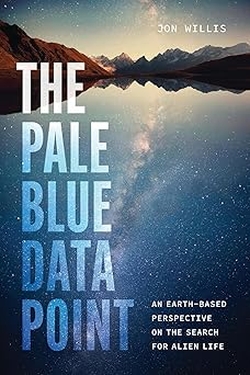When Bernard Foing, chief lunar scientist for the European Space Agency, suggested last week that a DNA library be placed on the moon in the event of some unspecified catastrophe on Earth, he was surely thinking about similar projects already at work on a more terrestrial level. As Space.com reported recently, a project called Frozen Ark already exists to preserve the DNA of endangered species. Here’s a link to a BBC story on Frozen Ark.
The Space.com story quotes Bill Holt from the Zoological Society of London, who sits on the Frozen Ark steering committee, as saying that it would be “…prudent to store all of the DNA sequence data presently being collected by the Human Genome Project” safely on the Moon, “so that we never have to repeat it all, come what may.”
Both ideas are a telling reminder of a simple fact: the Earth has been the repeated target of asteroids, large meteors and comets throughout its existence, and a massive hit from such an object could do anything from incinerating a city to creating a global winter that could doom the species. Gregory Matloff, the prescient author of The Starflight Handbook (Wiley, 1989 — the ultimate resource for those in search of an overview of interstellar propulsion ideas), told me last year that the threat of such strikes might drive humanity more than anything else to become a deep space-faring civilization. After all, detecting an object as it closes in to strike the Earth will do us no good. We will need to intercept it when we can still do something about it, and that should translate into a Solar System-wide infrastructure extending to the outer planets. We may one day use its capabilities to construct and send our first interstellar probes.
Also intriguing: ARC, the Alliance to Rescue Civilization. A grand name, to be sure, but the superb science journalist William Burrows is a co-founder. Another founder is Robert Shapiro, whose 1999 book Planetary Dreams: The Quest to Discover Life Beyond Earth (Wiley, 2001) should be on the shelf of anyone following that quixotic search. Burrows himself is at work on a project of true long-term thinking: The Survival Imperative: Using Space to Protect Earth. Expect it on the shelves next year.


Interstellar Ark
Strange Paths Feb. 14, 2007
*************************
“There are three strategies to
travel 10.5 light-years from Earth
to Epsilon Eridani and bring
humanity into a new stellar system:
1) Wait for future discovery of Star
Trek physics and go there almost
instantaneously 2) Build a
relativistic rocket powered by
antimatter and go there in 22 years
by accelerating constantly at 1g,
provided that…
http://www.kurzweilai.net/email/newsRedirect.html?newsID=6422&m=25748